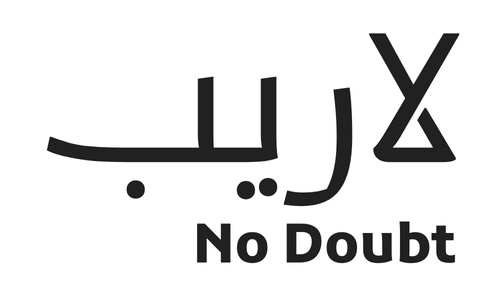Maximise Your Dhul Hijjah: The 10 Days That Can Transform Your Faith
بِسْمِ اللهِ الرَّحْمٰنِ الرَّحِيمِ
In the name of God, the Most Gracious, the Most Merciful.
The Prophet (صلى الله عليه وسلم) said:
“No good deeds done on other days are superior to those done on these (first ten days of Dhul Hijja).”
Then some companions of the Prophet (صلى الله عليه وسلم) said, “Not even Jihad?”
He replied, “Not even Jihad, except that of a man who does it by putting himself and his property in danger (for Allah’s sake) and does not return with any of those things.”
Reference:
– Sahih al-Bukhari, no. 969
Dhul Hijjah is the twelfth Islamic month, renowned for its first 10 days, the most spiritually powerful period in the year. These days offer unmatched rewards for worship, charity, and reflection. Will you let them pass quietly, or will you help them reach their true potential?
Take this sacred invitation, make each day count, and let your actions echo beyond Dhul Hijjah.
See the Five Pillars overview → Pillars of Islam
Why Are the First 10 Days of Dhul Hijjah So Special?
The first 10 days of Dhul Hijjah are unlike any other time of the year. Allah Himself swears an oath by these days in the Qur’an:
“By the Daybreak, and by ten nights.” (Qur’an, 89:1-2)
Most scholars agree that these “ten nights” refer to the first 10 days of Dhul Hijjah, highlighting their supreme status.
What Does the Quran and Sunnah Say About Dhul Hijjah?
The Qur’an honours these days (Qur’an, 89:1-2), and the Sunnah is filled with narrations emphasizing their virtue. Notably, the Messenger of Allah (صلى الله عليه وسلم) described them as the best days in the sight of Allah (Ibn Hibban).
How Do Scholars Explain the Virtues of These Days?
Ibn Hajar (rahimahullah) explained:
“All major acts of worship prayer, fasting, charity, and Hajj, come together only in these days, a combination not found in any other part of the year.”
The days of Dhul Hijjah are superior even to the last 10 days of Ramadan in terms of action, though Laylat al-Qadr remains the best single night.
What Are the Best Deeds to Do in Dhul Hijjah?
The first 10 days of Dhul Hijjah are a time to increase all forms of worship and good deeds.
How Can You Maximise Good Deeds Each Day?
Fast the First 9 Days:
The Prophet (صلى الله عليه وسلم) used to fast during the first nine days of Dhul Hijjah. Fasting the Day of Arafah (9th) erases the sins of the previous and coming year (Muslim, 1162).
Engage in Dhikr:
Recite SubhanAllah, Alhamdulillah, Allahu Akbar, and La ilaha illa Allah frequently. The Prophet (صلى الله عليه وسلم) encouraged abundant remembrance (Musnad Ahmad, 5446).
Increase in Salah:
Pray extra Sunnah, Tahajjud before Fajr, and Salat al-Duha between sunrise and Dhuhr (Tirmidhi, 475).
Give in Charity:
Every act of giving is multiplied. “Those who give charity… will have it multiplied for them, and they will have an honourable reward.” (Qur’an 57:18)
Practice Self-Improvement:
Cleanse your character, be patient, forgive, and seek forgiveness.
Connect with Your Community:
Volunteer, help those in need, and encourage family and friends to do good.
What Is the Spiritual Impact of Fasting, Prayer, and Charity?
These acts bring immense rewards and draw a person closer to Allah. Fasting, in particular, purifies the heart; prayer opens spiritual doors; charity benefits both giver and receiver.
How Can Families and Children Participate?
Get your children involved in simple acts of charity, recite dhikr together, create a daily Dhul Hijjah chart, or craft Dhul Hijjah-themed activities. Building family traditions makes these days memorable.
Key Reflection: Every effort, no matter how small, is magnified these days; make each action count.
How to Spiritually Prepare for the 10 Days of Dhul Hijjah?
What Mindset and Intentions Should You Have?
-
Begin with sincere intention (niyyah) to please Allah.
- Renew your intention upon Tawhid.
-
Set clear goals for worship, charity, and self-improvement.
-
Approach these days with humility and gratitude for the opportunity.
Tips for Consistency and Avoiding Common Pitfalls
-
Plan ahead: Mark key dates (like the Day of Arafah).
-
Stay accountable: Share goals with family or friends.
-
Avoid burnout: Focus on steady, sustainable acts.
-
Seek forgiveness daily: Purify your heart and mend relationships.
Key Reflection: The reward is not just in big deeds, but in daily consistency and sincere intention.
The Day of Arafah: Why Is It the Pinnacle of Dhul Hijjah?
The 9th day, known as the Day of Arafah, is the spiritual climax of Dhul Hijjah.
What Is the Significance of Fasting on This Day?
The Prophet (صلى الله عليه وسلم) said:
“Fasting on the Day of Arafah, I hope from Allah, expiates the sins of the year before and the year after.” (Muslim, 1162)
Powerful Duas and Acts for the Day of Arafah
-
Supplicate sincerely; the Prophet (صلى الله عليه وسلم) called it “the best supplication” (Tirmidhi, 3585).
-
Make abundant dhikr and seek forgiveness.
-
Avoid distractions; focus on worship, even if you are not performing Hajj.
Key Reflection: The Day of Arafah is a day of liberation from the Fire, make the most of it.
Qurbani (Udhiya): Following the Sunnah of Ibrahim (AS)
What Are the Rules and Wisdoms of Sacrifice?
Qurbani commemorates the willingness of Ibrahim (AS) to sacrifice for Allah. It is a Sunnah Mu’akkadah (highly recommended practice). The sacrifice should be done after Eid Salah, with proper distribution to the needy.
How Can Non-Hajjis Participate in the Rewards?
Even if not performing Hajj, every eligible Muslim should offer qurbani. If unable, sponsoring a sacrifice through charity is also rewarded.
Frequently Asked Questions - Dhul Hajjah
1. What are the first 10 days of Dhul Hijjah?
The first 10 days of Dhul Hijjah are the opening days of the twelfth Islamic month. They are considered the most blessed days for worship, charity, and good deeds, even surpassing other times of the year in virtue.
2.Why are these 10 days so special in Islam?
These days are mentioned in the Qur’an (Surah Al-Fajr 89:1-2) and the Prophet (صلى الله عليه وسلم) said that righteous deeds during these days are more beloved to Allah than at any other time.
3.What are the best actions to do in the first 10 days of Dhul Hijjah?
The best actions include fasting, especially on the Day of Arafah, performing extra prayers, giving charity, increasing dhikr (remembrance of Allah), seeking forgiveness, and offering Qurbani (sacrifice).
4. Is fasting in Dhul Hijjah obligatory?
Fasting during the first nine days is not obligatory but highly recommended, particularly fasting on the Day of Arafah, which expiates sins of two years.
5. What is the significance of the Day of Arafah?
The Day of Arafah (9th Dhul Hijjah) is the climax of Hajj, a day for forgiveness and answered prayers. The Prophet (صلى الله عليه وسلم) said fasting this day expiates the sins of the previous and coming year.
6. Do I have to offer Qurbani (Udhiya) if I am not at Hajj?
Qurbani is not obligatory unless you meet certain conditions, but it is highly recommended for those who can afford it. It commemorates Prophet Ibrahim’s (AS) devotion to Allah.
7. Can women, children, and families benefit from these days?
Absolutely. Everyone can participate in fasting, charity, remembrance, learning, and family worship. Simple actions with sincere intention are highly rewarded during these days.
8. What du’as or dhikr should I focus on?
Regularly recite “SubhanAllah,” “Alhamdulillah,” “Allahu Akbar,” and “La ilaha illa Allah.” The Prophet (صلى الله عليه وسلم) recommended increasing these supplications in Dhul Hijjah.
9. How can I make the most of Dhul Hijjah if I am unable to go for Hajj?
You can maximize rewards through sincere acts: fasting, charity, extra prayers, learning, helping others, and remembering Allah. Every effort counts in the sight of Allah.

